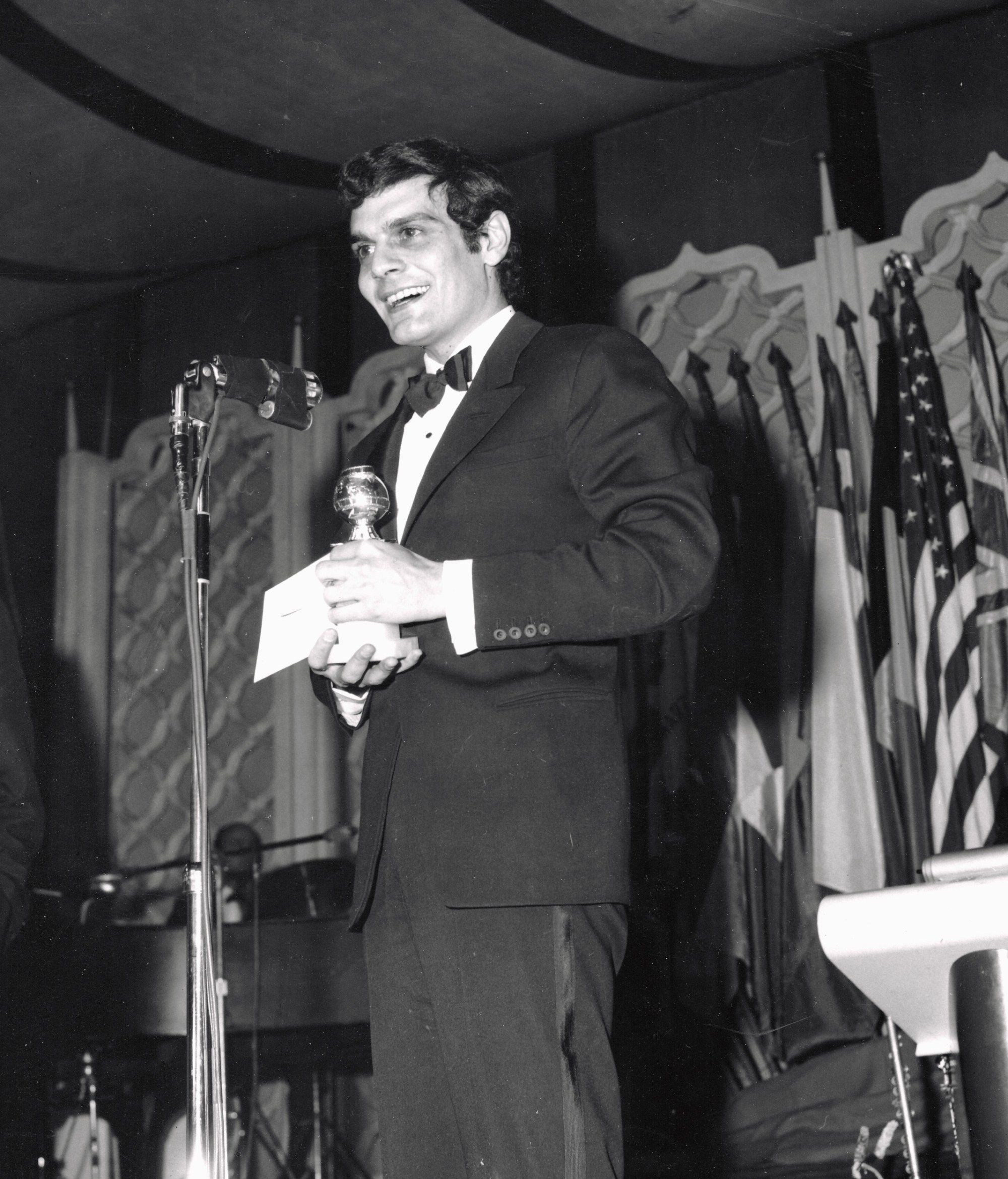
- Golden Globe Awards
Tomorrow’s Stars Yesterday: Omar Sharif, 1963
Between 1948 and 1983 Golden Globes were awarded in a special category of “New Star of the Year” conceived to recognize young actors making a mark in their early roles. In this series, the HFPA’s Phil Berk highlights those that would follow their auspicious starts with distinguished careers.
Omar Sharif, the second HFPA New Star of 1963, was unquestionably impressive in Lawrence of Arabia, but who would have ever imagined he’d become the most famous foreign actor of the 60s and 70s? Of course, before that he had been a glamorous leading man in his native country Egypt, having starred in over twenty films there, but that was before David LeanLawrence of Arabia.
In order to get the role he had to sign a seven-year contract with Columbia, at the exploitive salary of $50,000 a picture, but it served him well when Frank SinatraFunny Girland he got the role opposite Barbra Streisand in a film that became a box-office sensation.
Despite his seven indentured years, he never refused a role. An avid bridge player, life master and high stakes gambler, he apparently also knew when to hold ‘em and when to fold ‘em in his career.
Acting was his source of livelihood, but his true calling was as an international bridge player, one of the greatest of all time, with a huge following thanks to the daily column he wrote, which was syndicated throughout the world, and the many books he penned. Regardless of his personal preference, it was his film career that endeared him to audiences all over the world. And what a remarkable career he had.
After signing with Columbia, he joined an all-star cast in The Fall of the Roman Empire, shared star billing with Gregory PeckAnthony QuinnFred Zinnemann’s Behold a Pale Horse, appeared with Ingrid BergmanRex HarrisonThe Yellow Rolls Royce, played the title roles in Genghis Khan, Marco the Magnificent, and on loan to MGM for his most beloved film Doctor Zhivago, again it was David Lean’s doing. The film won the Golden Globe as Best Picture and both he and Lean were winners for Best Actor and Director. Which no doubt paved the way for his being cast in Funny Girl, which established him as a romantic lead. But before that, he returned to his native Egypt, to make The Marmalukes, which surprisingly failed to capitalize on his international fame.
Back at Columbia and under Sam’s eagle eye (he was once known as S.P. Eagle) he made Anatole Litvak’s The Night of the Generals with Peter O’TooleMore Than a Miracle with Sophia Loren, which must have convinced Barbra she had her leading man. After Funny Girl he wooed Catherine Deneuve in Mayerling, he was Gregory Peck’s nemesis in MacKenna’s Gold, Anouk Aimée’s love interest in Sidney Lumet’s The Appointment, and a miscast Che Guevara in Richard Fleischer’s Che.
However, as he told the HFPA at his last press conference, “Early on I had great successes in a very brief spell of time. But after that, I made five films with great directors, not cheap films that you could refuse, but films with big stars like Gregory Peck, Anthony Quinn, Anouk Aimee. All were unsuccessful, and in this industry when you have five flops in a row you’re in big trouble.”
And he was right. No longer under contract to Columbia, he made a lot of bad choices. There were a few exceptions notably Blake Edwards’ The Tamarind Seed with Julie Andrews, but essentially he accepted whatever role he was offered in part to cover his gambling debts.
But there were no regrets because during those lean years in the 70s he achieved international acclaim as a bridge Life Master. He authored numerous best-selling bridge books and created a video game that is still sold in Windows and mobile platform versions. He later won an even greater following when he served as the hand analyst commentator for the Epson worldwide bridge contests.
Not that he gave up acting altogether. But it was not until the new millennium when he had stopped playing bridge that he finally was given a role worthy of his talent Monsieur Ibrahim, for which he won the Cesar as Best Actor while the film was nominated for a Golden Globe.
Like others before him, his light shone brightly but too briefly.
But why should it bother him when he has those three classics to look back on – Lawrence of Arabia, Doctor Zhivago, and Funny Girl, each a masterpiece of its genre.